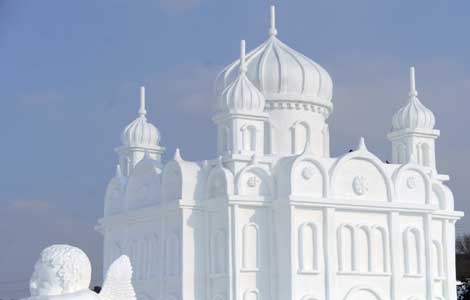Violence kills 75 in Iraq, PM seeks support
Updated: 2014-01-16 10:15
(Agencies)
|
||||||||
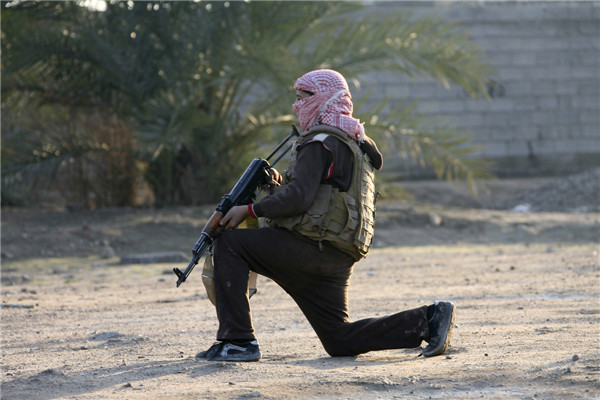 |
|
A masked Sunni Muslim gunman takes position with his weapon during a patrol in the city of Falluja, 70 km (44 miles) west of Baghdad Jan 15, 2014. [Photo/Agencies] |
BAGHDAD - Bomb attacks and shootings killed at least 75 people in Iraq on Wednesday, police and hospital sources said, making it one of the bloodiest days in months.
In the deadliest incident, a bomb blew up in a funeral tent where mourners were marking the death two days ago of a Sunni Muslim pro-government militiaman, police said. It killed 18 people and wounded 16 in Shatub, a village south of Baquba.
In northwestern Iraq, assailants detonated roadside bombs near a bridge in Ain al-Jahash, 60 km (37 miles) south of Mosul as an army patrol was crossing it. Six soldiers were killed and eight people were wounded, six of them civilians, police said.
Gunmen killed seven truck drivers, kidnapped two and set three trucks ablaze in the mainly Shi'ite district of Maamil in Baghdad's eastern outskirts, police said.
Two years after US troops left Iraq, violence has climbed back to its highest levels since the Sunni-Shi'ite bloodshed of 2006-2007, when tens of thousands of people were killed.
The army is locked in a standoff with Sunni militants who overran Falluja, a city west of Baghdad, more than two weeks ago in a challenge to Prime Minister Nuri al-Maliki's Shi'ite-led government.
They are led by the al Qaeda-linked Islamic State of Iraq and the Levant (ISIL), which is fighting in western Iraq and Syria to carve out a cross-border Islamist fiefdom.
"The battle will be long and will continue," Maliki said on state television, calling for world support. "If we keep silent it means the creation of evil statelets that would wreak havoc with security in the region and the world."
Maliki has ruled out an assault on Falluja by the troops and tanks ringing the city of 300,000, but has told local tribesmen to expel ISIL, which has exploited anger among minority Sunnis against a government they accuse of oppressing them.
Al Qaeda loyalists are pursuing a relentless campaign of attacks, mostly aimed at security forces, Shi'ite civilians and Sunnis seen as loyal to the Shi'ite-led government.
The violence has dismayed leaders of Iraq's autonomous Kurdish region. "This is a disaster," its president's chief of staff Fuad Hussein told Reuters. "Now the whole country is being threatened by terrorists, so we need to have a common front."
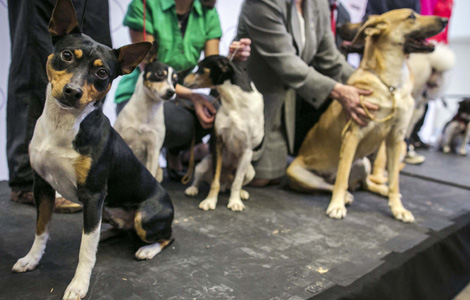
 138th Westminster Kennel Club Dog Show to open
138th Westminster Kennel Club Dog Show to open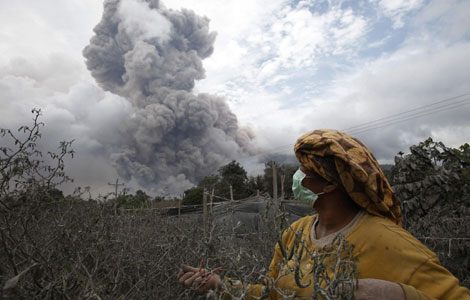
 Volcano displaces thousands in Indonesia
Volcano displaces thousands in Indonesia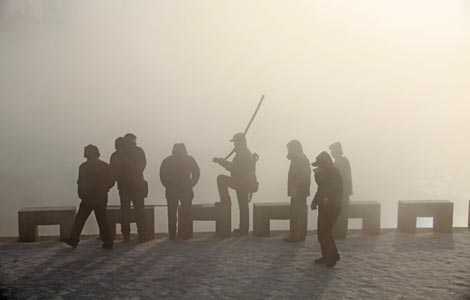
 China issues fog alerts
China issues fog alerts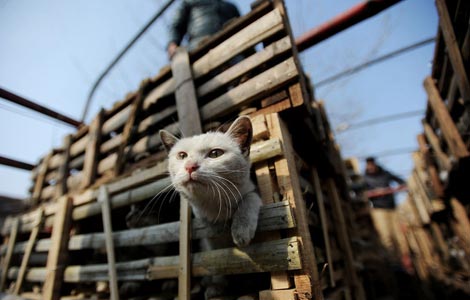
 Stray cats on the way to be slaughtered saved
Stray cats on the way to be slaughtered saved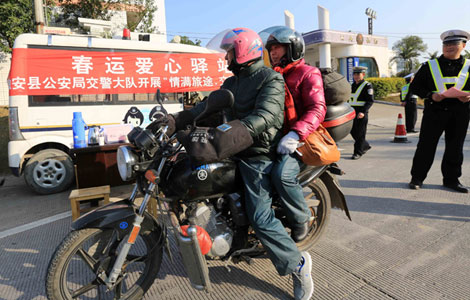
 Guangdong eases way home for workers
Guangdong eases way home for workers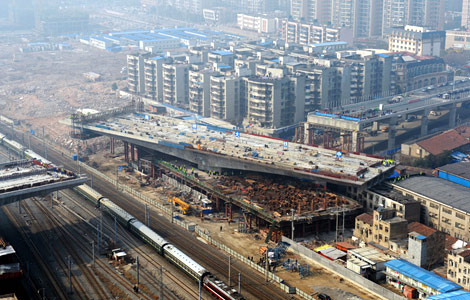
 Wuhan overpass swings into place
Wuhan overpass swings into place
 Detroit auto show features fuel-efficient cars
Detroit auto show features fuel-efficient cars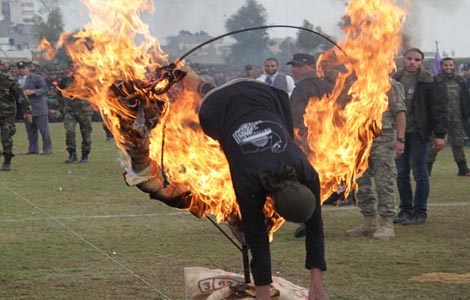
 Palestinian students show military skills
Palestinian students show military skills
Most Viewed
Editor's Picks

|

|
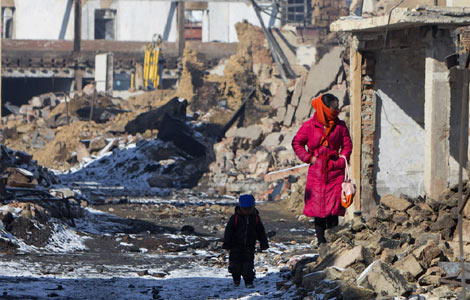
|

|

|

|
Today's Top News
Majoring in anti-money laundering
China's airlines ready for rush
Draft law: Clean up air or pay fine
Park venues targeted in corruption drive
IMF faults Congress' budget
Year of the Horse stamp issued
China seeks to calm US fears over missile
Doubt on Tokyo's diplomatic push
US Weekly

|

|



